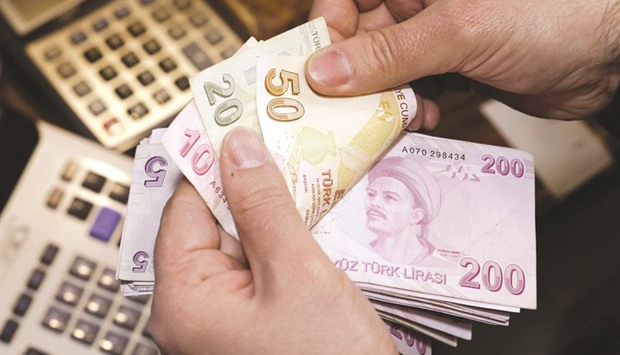Turkey has raised $1.5bn from international investors, its first foray into overseas debt markets since it received a second junk rating in the weeks following a failed coup attempt.
The government sold $1.5bn in notes due October 2026 at a yield of 4.875%, compared with initial guidance of about 4.9%, according to a person familiar with the matter, who asked not to be identified because they’re not authorised to speak publicly. The yield on the same securities, initially sold in March at 5%, was 4.72% in the secondary market at 6:30pm on Friday in Istanbul.
Emerging-market issuers are benefiting from a boost in demand as investors seek income-bearing assets after central bank stimulus in the developed world pushed about $11tn of bonds into negative yields. While Turkey’s borrowing costs have fallen this year, the country is still paying a premium to peers amid political crises that prompted its credit-downgrades.
“The deal was very successful as they managed to up the size of the issue and pre-issue for next year,” said Anders Faergemann, senior portfolio manager at PineBridge Investments Europe Ltd in London, who placed an order for bonds in the offer.
The sale comes a day after Turkey’s lira weakened to a record low against the dollar as investors gear up for the Federal Reserve to raise US rates in December. The move may reduce the appeal of emerging markets with the promise of improving yields on dollar assets.
“With increased talk of a potential Fed December rate hike, it makes sense for Turkey to do more now and wait for the market uncertainty to evaporate next year before having to return to the international borrowing market,” Faergemann said.
While yields on Turkey’s 2026 dollar bond have fallen 27 basis points since they were sold in March, the average rate for emerging-market sovereign dollar debt has dropped 70 basis points in the period to 4.38%. That’s a 34 basis-point discount to Turkey’s 10-year bond.
Moody’s downgraded the nation’s credit rating to junk in September, citing a slowdown in the economic growth and risks to its ability to attract foreign capital following the attempt to overthrow the government. That downgrade followed S&P Global Ratings, which already rate Turkey non-investment grade and cut it further five days after the putsch.
Before the latest offering, Turkey raised $3bn in Eurobonds sold in March and May and $1bn through a sukuk, according to the government’s September Public Debt Management Report. It planned to borrow as much as $4.5bn in the international capital markets this year.

A money changer counts Turkish lira bills at a currency exchange office in Istanbul. Moody’s downgraded the nation’s credit rating to junk in September, citing a slowdown in the economic growth and risks to its ability to attract foreign capital following the attempt to overthrow the government.
